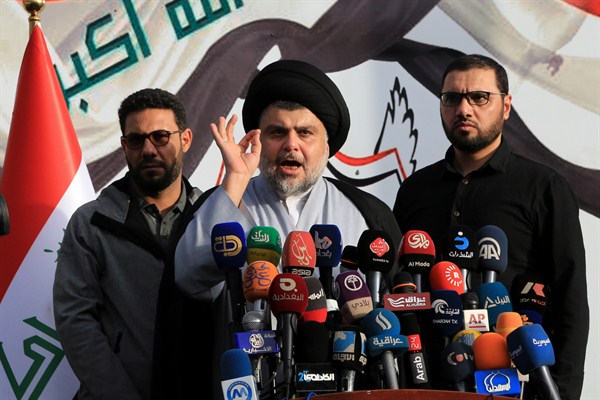A key character from the Iraqi insurgency is back center stage in Baghdad, but what does it mean? The re-emergence of Muqtada al-Sadr, the 42-year-old Shiite cleric notorious for his firebrand rhetoric and command of a feared militia, the Mahdi Army, has sparked all kinds of coverage.
Sadr has been compared to an “Iraqi Gandhi”—an evolution, in the same headline, from “rabid warlord.” His apparent reinvention from militia leader to “shrewd political operator” has people asking, again, whether he is the most powerful man in Iraqi politics. The return of this “old provocateur” in February amid streets protests outside Baghdad’s Green Zone, the fortified government compound, led to a story last week calling him “the Donald Trump of Iraq.”
Twice in the last month, most recently last week, Sadr’s supporters have breached the Green Zone to occupy government offices and demand that parliament finally approve reforms proposed by embattled Prime Minister Haider al-Abadi. The first breach appeared to be a bit of political theater, as The New York Times Tim Arango reported, since it came with perhaps the tacit approval of Abadi, given how easily protesters entered the Green Zone. Last week’s breach was different: After protesters stormed Abadi’s office, security forces fired live ammunition and tear gas at demonstrations, injuring hundreds and reportedly killing three.

